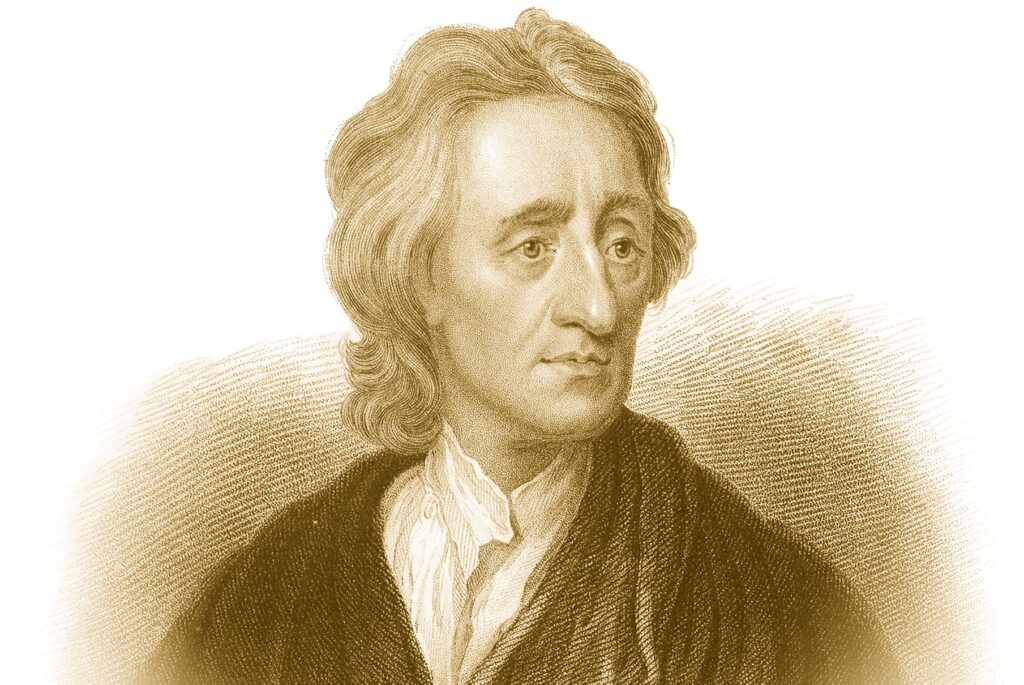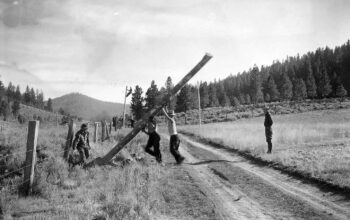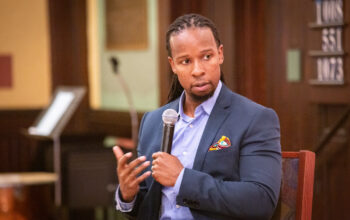The modern world has spent the past several decades in a liberal consensus. Liberalism, it is often said, has brought us freedom, prosperity, and peace. However, an increasing number of people on both left and right have become dissatisfied with the liberal status quo. It seems that, despite its obvious accomplishments, liberalism is not living up to some of the expectations which have been placed upon it.

When met with the notion that someday, our modern democracy may decline, and the notion that humanity may enter an era where democratic government isn’t the norm, some of us might give a slight chuckle. We assume no such thing could ever happen. We are living in a liberal world. The fall of Nazi Germany and the Soviet Union demonstrates that liberalism won out. This hard won victory leaves us with a great deal of pride. Democracy stood strong in the face of all opposition, and obtained near global hegemony. As Francis Fukuyama once stated in his popular book “The End of History and the Last Man:
“What we may be witnessing is not just the end of the Cold War, or the passing of a particular period of postwar history, but the end of history as such: that is, the end point of mankind’s ideological evolution and the universalization of Western liberal democracy as the final form of human government.”
However, like Hitler’s Third Reich or Trotsky’s World Revolution, American democratic liberalism will almost certainly not have one thousand years in the sun. Much like the Romans, we like to think of the liberal world order led by the United States as an eternal fixture, the political arrangement that has at last overcome the errors of the past. This naive fantasy often prevents us from taking threats to our civilization seriously, paralyzing us in the face of crisis. We must be able to envision a day where things go wrong for our beloved democracy, and be willing to fight to prevent such a day from dawning.
Dystopian fantasies are a common trope of modern cinema and television, and highlight a pervading anxiety that lies at the heart of our current political discourse: without democracy, we’re lost, and under totalitarianism, our personal liberties and dreams may be crushed. This anxiety is reflected in popular television shows and movies like A Handmaid’s Tale and V for Vendetta, and demonstrate in part our self assured belief that we the people will always stand against tyranny, fight for democracy, and will do anything necessary to preserve this system. Despite our belief that the age of liberalism will never end, modern liberal democracy faces many problems that must be addressed before we can consider ourselves safe from its decline.
Democracy in Danger
Democracy in our current era faces many challenges, and these challenges stem from myriad sources. In the modern West, we are faced with tribalism, social strife, the decline of social capital, and the destruction of communities. The list could stretch onwards. Each of these problems are endemic to our modern liberal system. From the Ruhr to the Highlands, from the Outback to the Great Plains, the West is deeply sick, and most people agree that the system is in dire need of reform in one way or another. In his landmark book titled “Why Liberalism Failed,” Patrick Deneen helps us understand one of the main causes of this sickness. Liberalism failed, according to Deneen, not because it failed to accomplish its intended goals. Rather, the system fell short because it succeeded in doing so.
Liberalism was founded on the impulse towards liberation, a desire to grant economic and personal autonomy to individuals as far as reason and prudence permitted. However, as the years rolled onwards, the standards of reason and prudence shifted, and cries all across the West grew louder: from markets to morals, those who stand in the way of our liberation must be quashed, in the name of liberty. Deneen highlights how, despite its lofty ideals, our modern system simply fails to capture significant improvements: “As liberalism has ‘become more fully itself,’ as its inner logic has become more evident and its self-contradictions manifest, it has generated pathologies that are at once deformations of its claims yet realizations of liberal ideology. A political philosophy that was launched to foster greater equity, defend a pluralist tapestry of different cultures and beliefs, protect human dignity, and, of course, expand liberty, in practice generates titanic inequality, enforces uniformity and homogeneity, fosters material and spiritual degradation, and undermines freedom.”
A political philosophy that was launched to foster greater equity, defend a pluralist tapestry of different cultures and beliefs, protect human dignity, and, of course, expand liberty, in practice generates titanic inequality, enforces uniformity and homogeneity, fosters material and spiritual degradation, and undermines freedom
The flaws of liberalism have increasingly led to calls from the left and right to give up on liberalism, only contributing to the seemingly unquenchable tide of fanaticism. Our nation is experiencing immense income inequality. Politics has become increasingly polarized and divided, as ideological fanaticism has replaced compromise as the political norm. This capture of thought through ideology is typically facilitated by both social and traditional media, and an increasing intolerance of opposing views in the public square have led many to decry the rise of a ‘cancel culture.’ Meanwhile, communities across the nation are in disarray and decline, and our freedom is limited by constant government intervention, surveillance, and regulation, paired with both censorship and lobbying on the part of large corporations. Each of these complex topics would take hours to deconstruct, but other problems of liberalism exist, certain problems that affect each and every one of us through culture and shared narratives. These problematic behaviors can be identified, examined, and understood, but a wider picture is necessary to truly appreciate the scope of liberalism’s modern illness.
Atomized
One of the hallmarks of liberalism is the desire to free individuals and society from all natural and artificial constraints. Liberalism, through its founders during the enlightenment, sought to create a world of individuals liberated from any standards, connections, or limitations that they personally find displeasurable. Some of the great founders of the enlightenment, such as John Locke, held that relationships ought to be purely negotiable in order for us to be truly free. For instance, Locke asserted that marriage should be seen as a contract that is inherently temporal in nature, and therefore capable of renegotiation should either party desire such a revaluation. Given this assumption, that all relationships are constructed on the basis of personal utility, our considerations for individual values and desires supersedes any personal connections, responsibilities, and ties that might anchor us to a community, nation, religion or any other relationship. While such ties might be considered restrictive by some, the commodification of all human connection has made a serious impact on modern society. The freedom to associate and dissociate from those around us upon a whim comes at a high cost, as we become atomized and disconnected from those around us. Without any of the philosophical and personal bonds that previously tethered us to loved ones, communities, and nations, we become lost in a sea of interests and desires without any sense of grounding connection. We are plunged into a world awash with disloyalty, where the conditions of love and kindness are built off of utility rather than something more.
Under such conditions, human interaction tends to be rendered vacuous. We can see in our daily lives how the foundational tenets of liberalism destroy community, family, romance, and religion alike. Communities are flayed to pieces by the transient nature of modern economies, which enable constant movement for the sake of better growth and opportunity, at the cost of frequently uprooting families from established communities in favor of obtaining better economic prospects. Familial obligations become pervaded by a newfound frailty, as the negotiability of marriage creates families based around personal utility, rather than considerations for the health of children or the sanctity of the family as a whole. Romance, love itself, is malformed into a licentious pursuit of pleasure, and love is shattered into a crippled remnant of sexual and intellectual connections that are as fickle as they are vacuous. Finally, religious belief itself becomes negotiable as a mere expression of personal opinion, rather than a guiding moral philosophy which shapes life and society. In such a moral and cultural vacuum, nothing is safe.
With the death of these vital institutions comes a new era where transience and fickleness reign, and personal connections wither away. One might think that the skyrocketing rates of suicide, depression, and loneliness could be traced in part to this phenomenon. Men and women today grow up listless, alone and afraid. Many are raised in fatherless homes. Others are dragged from one side of the country to another, forced to find new friends and create new networks every few years. Still, others are caught in a world where they feel alone, misunderstood, and purposeless. Separated from any guiding moral fabric, there is a hole that religion and community once occupied, now haphazardly occupied with pornography, video games, television or other fleeting emotional band-aids. At least they are at last completely free to wander the rubble of a once robust national community at their leisure.
A New Social Religion
A new social religion has also emerged in our modern period. This new religion is liberation in its pure, unadulterated form, the opposition to any form of social or cultural limitations. The rise of a new social order in the United States during the civil rights era coincided with the imposition of a new cultural regime maintained largely by this nation’s elites. Christopher Caldwell’s The Age of Entitlement explains in depth exactly how an ascendant class of rich white liberal filtered into the upper echelons of American life. After decades of growing power in the media establishment and government bureaucracies, upper and middle class individuals were able to mold the system such that it empowered them to reform the nation’s social and political landscape. The growth entrenched new and powerful interests that have only grown in strength and influence in the ensuing decades. This new decentralized priesthood has loomed over America for years, and officiates it’s often contradictory interests and aims through a wide ranging assault perpetrated by academics, journalists, bureaucrats, businessmen and politicians, all of them eager to take part in a reciprocal game that continually strengthens their respective institutions and interests.
Caldwell also notes how those ostensibly opposed to the rise of the new liberal elite only contributed to the United States’ cultural decline. Ronald Reagan, for instance, sought to empower new elites to counter the power of the liberal establishment. His tax cuts and promotion of business interests only enabled the rise of a new billionaire class, strengthening one of the two central factions of the modern liberal dichotomy: the economic liberals, as opposed to the social liberals. This rise of corporate power of course only contributes to the consumerization of the West, the increasing capitulation of all facets of American life to the mechanisms of Capitalism, the acquisition of wealth and status, increasing identification with brands over people, and the search for products and momentary satisfaction over personal growth and truly meaningful experiences.
This new social religion, decades in the making, is composed of much more than mere material interests. It includes a new metaphysical order as well. It places the will of the individual as the prime factor of reality, with liberation as its goal and absolute equality as its mandate. From such a view, the only salvation of society lies in absolute freedom of lifestyle and the exaltation of victimhood. This salvation, typically, manifests through intrusions on the part of governments and other organizations on individuals, communities, and the public peace in order to facilitate their single minded pursuit of justice and human liberation through material equality. This lopsided and single minded crusade to obtain unlimited liberty and a world devoid of material need can be neurotic, unhealthy, and even dangerous at times. Jonathan Haidt’s Righteous Mind, which explores 5 different virtue categories, detailing how societies and individuals make sense of the world. Of note, this book details how those who are very liberal are deeply concerned with the moral axes of care and fairness, but are largely unconcerned with the moral axes of loyalty, authority, and sanctity. Conservatives on the other hand, are concerned with all five of these axes. Herein the imbalance lies: this society, and most of those in power are possessed by the social religion of this epoch, by the reigning zeitgeist that maintains the primacy of constant empathy and justice for those that are ascribed victimhood status.
This division weakens the already meek sense of philia found in the American republic. Philia, as found in Aristotle’s Nicomachean Ethics, is the shared sense of love found within different relationships, ranging from lovers, to friends, to families, to tribes, and even between cities. Without nationally shared philia, we are doomed to division and social fragmentation. Trust cannot survive where there is no love, and democracy cannot survive where there is no trust. When we cannot trust those with the wrong opinions, we question their motives at every turn, and we watch their every move, scouring their actions for evidence of corruption and immorality. This attitude breeds further resentment, and only contributes to a downwards spiral of diminishing democratic potential. This sewing of endless division leaves us in a perpetual social war, and there is no sign of it stopping. This is and will remain the modus operandi of the current regime, because it is the easiest way for modern elites to obtain more power, prestige, and influence.
Gutting of Virtue
As stated before, one of the main tenets of the modern liberal way of life is pure liberation by any means necessary. This liberation also entails liberation from social standards, including religious and cultural ones. The Ten Commandments and prejudices against free sex, open marriage, etc. all limit and qualify human action, which, according to liberalism, must not be limited outside of the ability to induce direct physical harm. The desire to reduce these limitations is endemic to liberalism, but can find its origins in the thought of John Stewart Mill, another founding thinker of the enlightenment.
Mill proposed that individual liberty to live one’s lifestyle according to their preferences was absolutely necessary regardless of the consequences these preferences might have on one’s health, community, or relationship with God. This principle stands true in modern liberalism, which holds that personal liberty stands above all, so long as it is personal liberty that is not frowned upon for inducing harm or causing inconvenience for others, such as freedom of speech (often denounced as hate speech) or the right to bear arms. This individual liberty is centered upon a principle of personal atomization, wherein an individual is able to independently determine and manufacture their lifestyle and pleasures within a given accepted framework, accompanied by a pursuit of universal happiness for humanity guided by the sciences.
While many might find such a proposition seductive on its face, such an elimination of virtue in favor of boundless self determination is a profoundly irresponsible cultural trend. Virtue is the practice of living leading to human flourishing, or eudaimonia. As such, virtue is tied up in action and character, which determine the quality and length of our life, as well as the health of our relationships. Virtue is no arbitrary muse, and typically coincides with practices that have been determined over the course of many years to be proper and healthful. Virtue is not personally subjective, as it proceeds from human nature itself, nor can it be redefined on a whim for the sake of convenience. While circumstances may change, human nature remains stable and virtue retains its vigor, veracity, and validity as an ordering of behavior that helps us remain healthy. We must live out our lives in a manner that accords to natural and sustainable lifestyles. Hedonistic pleasure without purpose is not virtuous. Gluttony and laziness are also classic examples of vice, as are unfettered lust and greed. The pursuit of pleasure and personal validation without respect to the deeper needs of human beings, has increasingly created a society devoid of virtue and understanding of consequences, and a people incapable of managing its own affairs. This lack of substantive values has bred the dependency, atomization, and loneliness that pervade the age. A cursory glance at statistics for each progressive generation on measurements of loneliness, depression, fatherlessness and marriage rates indicate some substantial effect from this gutting of virtue.
The decline of virtue in modern society has led to a population incapable of dealing with the comparatively gentle eddies of modern life and unable to sustain substantive communities
The modern liberationist ethic frowns on any kind of restraint, ranging from eating healthily at one extreme to maintaining chastity at the other. While proclaiming an openness to all lifestyles, a hefty air of disdain is rendered upon any personal choices that cast doubt on the hedonistic mode of the age. In one case, the mechanisms of modern liberal society will seek to prevent harm to the individual through judgement, but in another case will proceed to judge others for providing a solution or living a lifestyle contrary to modern standards of liberation. This modern inclination is evidently hypocritical, and bereft of any logical consistency. The proclivity to deny the right of judgement to those who conduct themselves poorly guts the social standards which help maintain virtuous and higher quality lifestyles. This is because lifestyles which assume that personal restraint are necessary to live a fulfilling life are seen as “judgemental”. Without maintaining ample standards of virtue, we cannot raise citizens of character who are capable of managing their affairs, livelihoods, and relationships properly.
The worship of liberation also extends to the normalization of unhealthy culture and perspectives. Many Americans idolize criminal lifestyles, and make excuses for those from assigned victim groups, be they racial, cultural, or otherwise. While there may be very real systemic problems in society, past and present, individuals have moral agency and make their own choices- they are not defined solely by the categories of identity into which they are so often placed. Doing so abstracts people from both their own responsibilities and leaves them feeling helpless to change their own situation. Without an understanding of the relationship between one’s choices and said choices’ outcomes, we cannot hope to understand what actions are associated with success. Societies that refuse to acknowledge that a person can succeed through their own actions and societies that assert outcomes are determined by immutable factors create a culture of complacency and hopelessness. Irresponsibility and resentment necessarily follow from such assumptions, sowing deeper divisions between populations that only entrench prejudices and the bad practices that cause suffering in the first place. This reality necessitates a more balanced approach than is currently accepted, where evaluations of a person’s situation take into account more than identity alone, including an examination of personal choice, environment, how to properly mitigate the effects of past injustices, as well as the myriad other factors that contribute to personal and communal development.
Conclusion
It can be said that we are living in a sort of modern dystopia, albeit an underwhelming and quite laughable one. Modern westerners are pathologically empathetic, this phrase, amusing and ironic as it is, remains worryingly accurate. Our obsession with pain and injustice pervades every institution and interaction. As a result, we diminish the other values that are integral to our society, leaving them incomplete and partially formed. Communal and familial loyalty are diminished in favor of increasing atomization, personal interest, and hedonic preoccupation, that is to say loyalty to the self, to our own interests. There is no authority, save that which stems from politicians or institutions, which are fickle at best, and easily captured by insane ideologies at worst. There is no justice, unless we get our way, unless those of victimized classes receive what they define as justice. No liberty, unless it separates you from others. No maintenance of sanctity, because such desires hold back progress, unless of course we are maintaining the sanctity of certain monuments attached to victim groups or pioneers of liberalism. These half-formed values, erected and destroyed at the nearest convenience, do not constitute a stable system, nor do they demonstrate a way of life worth fighting for or worth living in. Without that stability, and an understanding of shared values, interests, and philia, there is no nation to speak of in this land we call America.



